
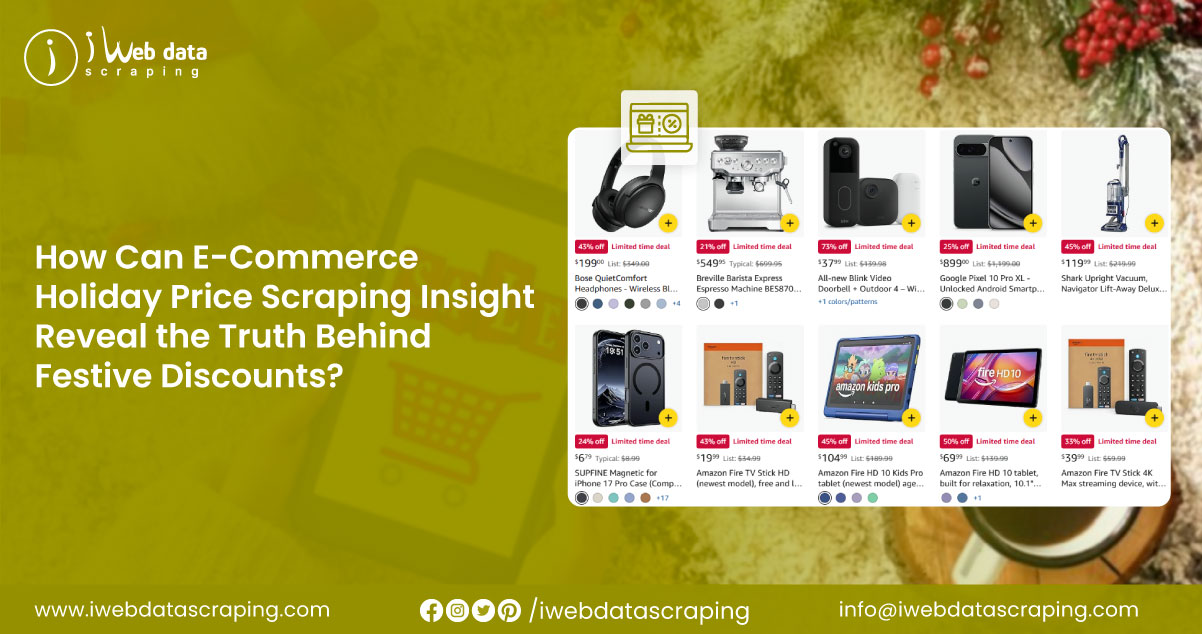
When the holiday season hits the USA and UK, consumers are greeted with a flood of “massive discounts,” “flash sales,” and “limited-time offers” from e-commerce giants. From Black Friday to Christmas and Boxing Day sales, shoppers are lured by promises of unbeatable prices. But are these deals truly as good as they appear? With advanced e-commerce holiday price scraping insights, researchers and analysts can now dig deeper into the truth behind these promotions. Data scraping reveals whether prices have genuinely dropped or if some retailers inflate “original prices” to create the illusion of discounts.
In the competitive online retail markets of the USA and UK, price manipulation has become a subtle yet widespread strategy. Many shoppers unknowingly fall prey to inflated discounts, buying products that may not be cheaper at all. Through e-commerce price tracking for holiday, businesses, analysts, and even consumers can uncover hidden pricing patterns, identify genuine markdowns, and expose deceptive marketing tactics that distort the concept of “holiday savings.”
The rise of web scraping e-commerce holiday Pricing data has transformed how brands, journalists, and watchdog organizations investigate retail pricing behavior. With data-driven transparency, it’s now possible to understand how prices evolve before, during, and after major holiday sales—and determine if shoppers are truly getting a fair deal.
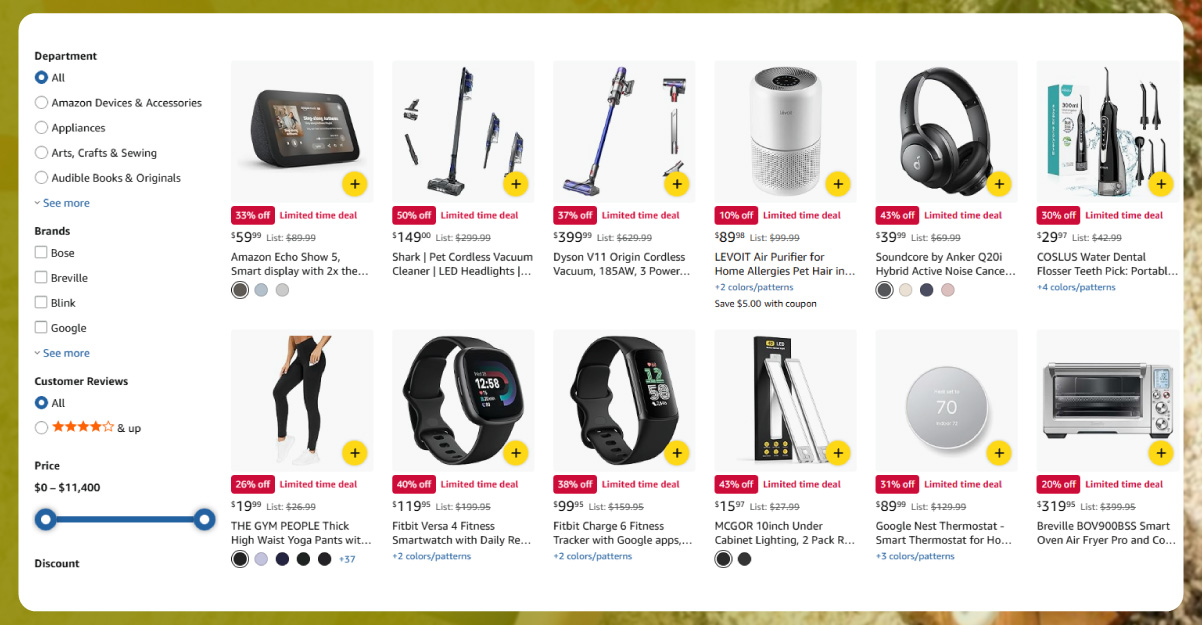
Each year, retailers capitalize on consumer excitement by offering deals that appear to be once-in-a-lifetime opportunities. However, web scraping has revealed a recurring pattern: prices often rise weeks before a major holiday, only to “drop” back to normal levels during the sale period. In many cases, the “discounted” price is identical to or even higher than the product’s regular price months earlier.
For instance, a television listed at $799 might be promoted as “50% off” during Black Friday, but web scraping data could show it was consistently sold for $399 over the previous months. Such discrepancies make it evident that many “holiday deals” are more about psychological marketing than actual savings.
With an e-commerce holiday price comparison data Extractor, analysts can detect these manipulations by tracking product listings across multiple retailers, collecting historical data, and analyzing price movements over time. This ensures that claims of “massive discounts” are validated against real historical pricing evidence.
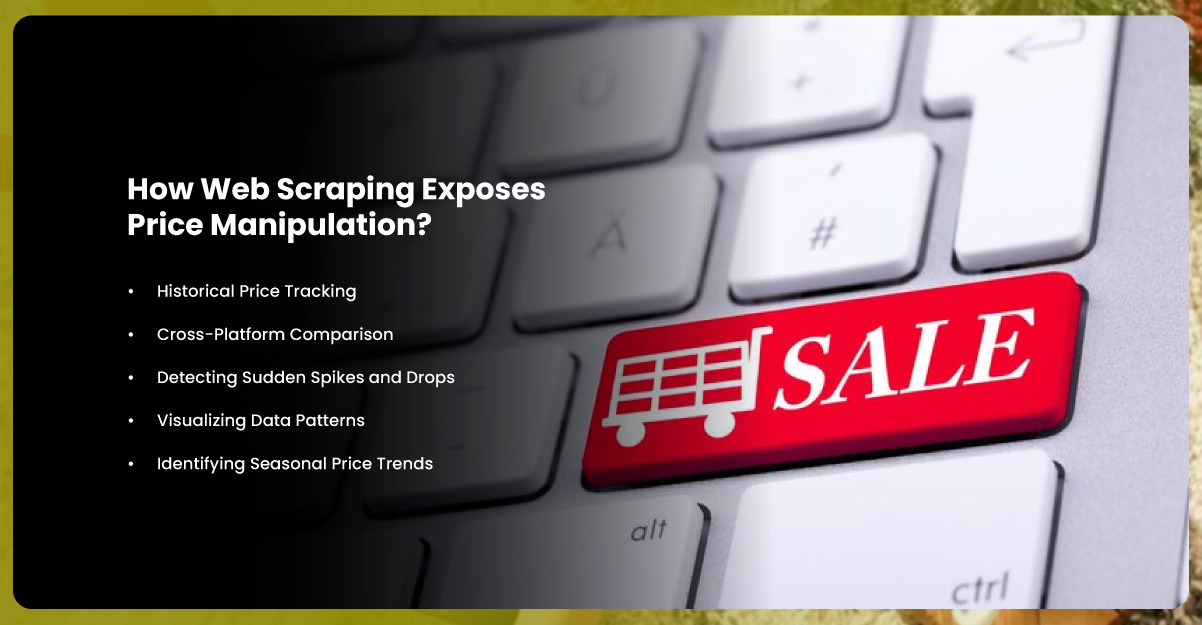
Web scraping enables the automated collection of vast amounts of data from online retailers, allowing analysts to identify trends, anomalies, and deceptive pricing tactics. Let’s break down how this process helps in unmasking fake holiday deals:
Such transparency made possible through real-time e-commerce product price tracking allows both businesses and consumers to make more informed decisions during the shopping frenzy.
The USA and UK e-commerce ecosystems show similar trends in price manipulation but differ in scale and consumer response.
In the USA, Black Friday and Cyber Monday remain the biggest sales events of the year. Retailers like Amazon, Walmart, and Best Buy dominate online shopping. Web scraping reveals that while some genuine deals exist, a large portion of advertised discounts are either recycled from past sales or based on inflated “was” prices.
In the UK, Boxing Day and Christmas clearance events see similar patterns. Major platforms such as Argos, Currys, and John Lewis are often found adjusting prices weeks before sales, creating false reference points to suggest steep discounts. Scraping data from these platforms provides a transparent look at how retailers structure their pricing strategies across the holiday season.
With e-commerce real discount vs fake sale data analysis, the patterns become clear: retailers across both markets often employ sophisticated algorithms that optimize pricing psychology—capitalizing on urgency, scarcity, and consumer trust.
Price transparency is not just a matter of consumer awareness—it’s essential for ethical retailing, fair competition, and long-term brand trust. When shoppers realize they’re being misled, it damages not only the retailer’s credibility but also the overall integrity of the e-commerce ecosystem.
Web scraping helps promote transparency by providing unbiased data derived directly from retailer listings. This data enables consumer advocacy groups, market analysts, and government regulators to monitor compliance with fair trading practices.
Using advanced scraping tools to Extract holiday campaign product prices form online retailer's, organizations can verify if sellers are genuinely following advertising standards. In both the USA and UK, consumer protection agencies increasingly rely on such data to investigate misleading discount claims.
Unlock deeper pricing transparency and smarter retail decisions—partner with us today to harness the power of precise e-commerce data scraping insights.
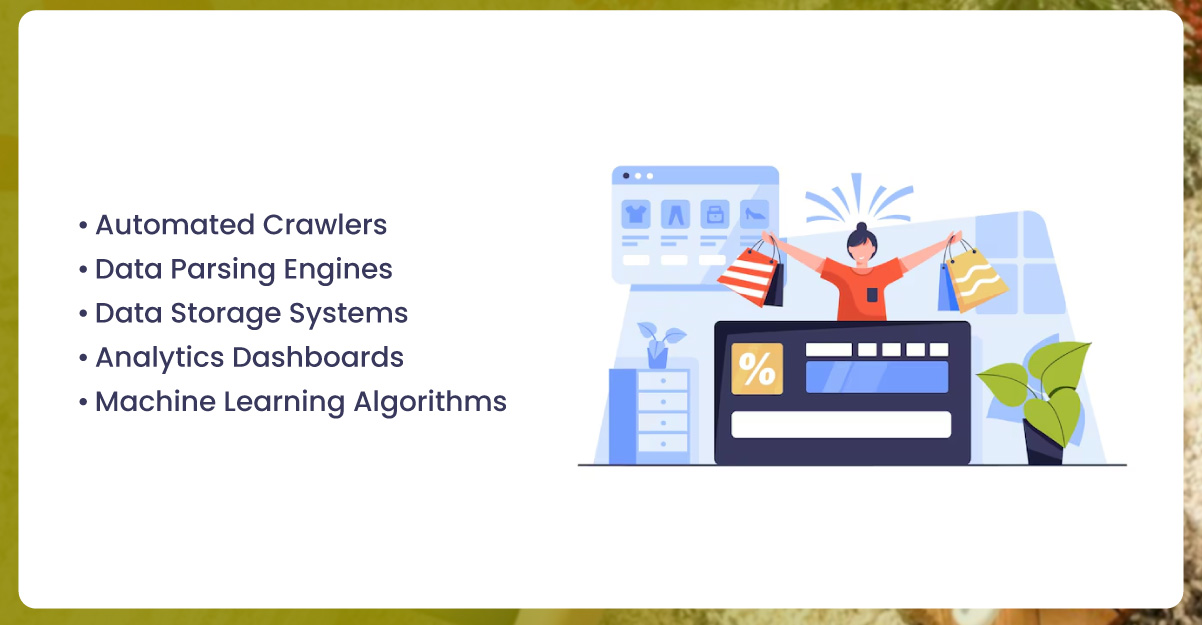
The process of web scraping e-commerce platforms involves several technical components designed to ensure data accuracy, reliability, and comprehensiveness.
Through these methods, businesses can easily Extracting product pricing patterns during Holidays, gaining valuable insight into the dynamics of competitive pricing.
These deceptive strategies become apparent through continuous e-commerce holiday sale data extraction, which captures every pricing move over the holiday season.
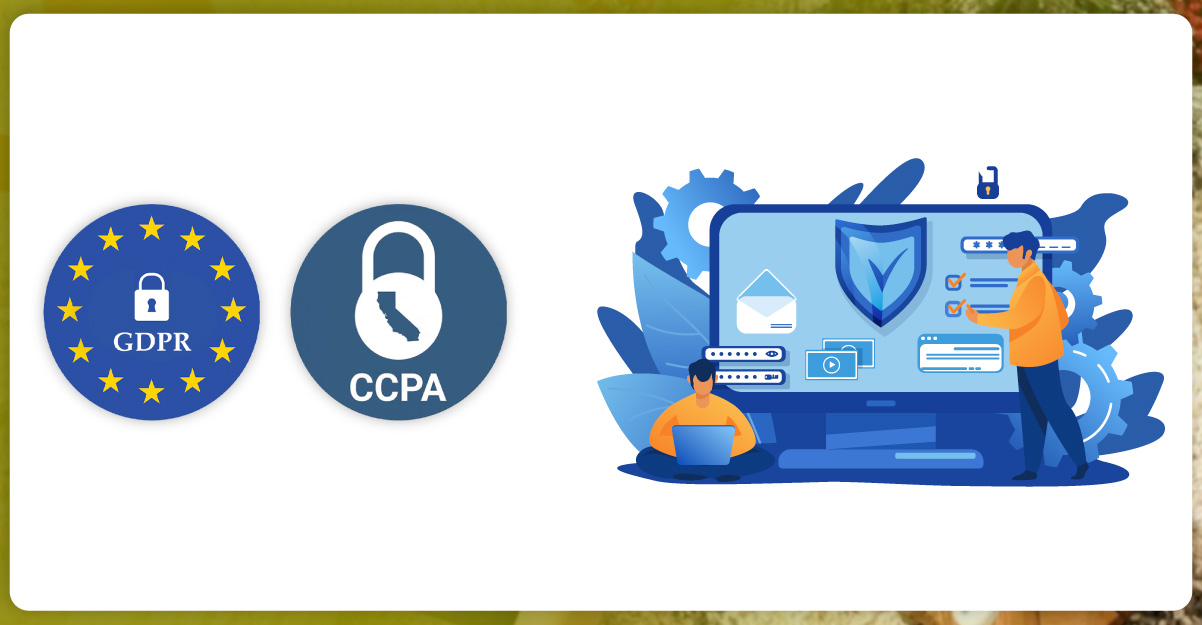
While web scraping offers powerful insights, it must be done ethically—respecting website terms, robots.txt protocols, and data privacy regulations. Ethical scraping focuses on publicly available information, ensuring compliance with data governance standards like GDPR in the UK and CCPA in the USA.
Professional data providers employ robust infrastructure, proxy management, and legal safeguards to ensure compliance. The goal is not to expose or harm retailers but to promote transparency and fairness through accurate, responsibly gathered information.
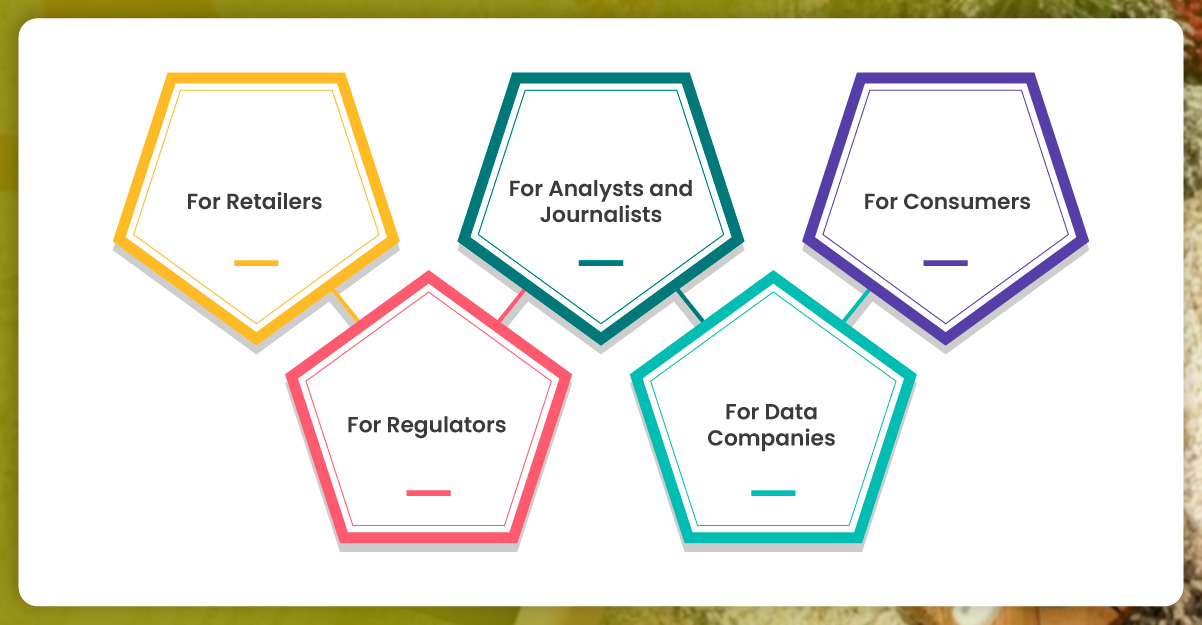
Holiday price scraping isn’t just for consumers—it’s a strategic asset for businesses, analysts, and regulators. Here’s how different stakeholders benefit:
These benefits extend across multiple industries, making holiday price transparency a vital part of modern e-commerce analysis.
Several independent studies using web scraping have revealed shocking insights:
Such revelations highlight the importance of using accurate, data-driven monitoring systems to combat consumer misinformation.

As e-commerce grows, so does the sophistication of pricing algorithms. Retailers now employ AI-driven dynamic pricing that changes rates multiple times a day based on demand, competitor moves, and consumer behavior.
However, this also means the line between smart pricing and deceptive pricing becomes thinner. Web scraping will continue to play a vital role in keeping markets transparent, holding businesses accountable, and empowering consumers to make informed choices.
In the future, integrating scraping tools with AI and blockchain technology could enhance data integrity and traceability, creating a fairer digital marketplace.
Unmasking price manipulation requires a combination of technology, analytics, and ethical responsibility. By leveraging continuous monitoring and structured datasets, companies can predict trends, verify retailer claims, and maintain consumer trust.
For businesses in the USA and UK, this level of transparency can significantly improve brand credibility. Consumers increasingly value honesty over hype, and organizations that prioritize data integrity gain long-term loyalty.
Web scraping has exposed the complex world of holiday price manipulation, shedding light on deceptive tactics that mislead millions of online shoppers. With advanced analytics, transparency becomes achievable—revealing genuine savings and holding retailers accountable.
As the digital marketplace evolves, businesses must embrace responsible data collection to ensure fair competition. Leveraging Price Data Scraping Service USA can help organizations build trust with consumers and uncover true pricing behavior across industries.
Modern tools like an E-Commerce Data Scraping API empower analysts to extract structured information at scale, driving precise, data-backed strategies. Combining these technologies with comprehensive E-Commerce Product Datasets enables companies to track, analyze, and forecast market trends—ensuring that every “discount” is based on reality, not illusion.
In an era where perception often overshadows truth, data-driven insights are the key to restoring trust in holiday shopping.
Experience top-notch web scraping service and mobile app scraping solutions with iWeb Data Scraping. Our skilled team excels in extracting various data sets, including retail store locations and beyond. Connect with us today to learn how our customized services can address your unique project needs, delivering the highest efficiency and dependability for all your data requirements.